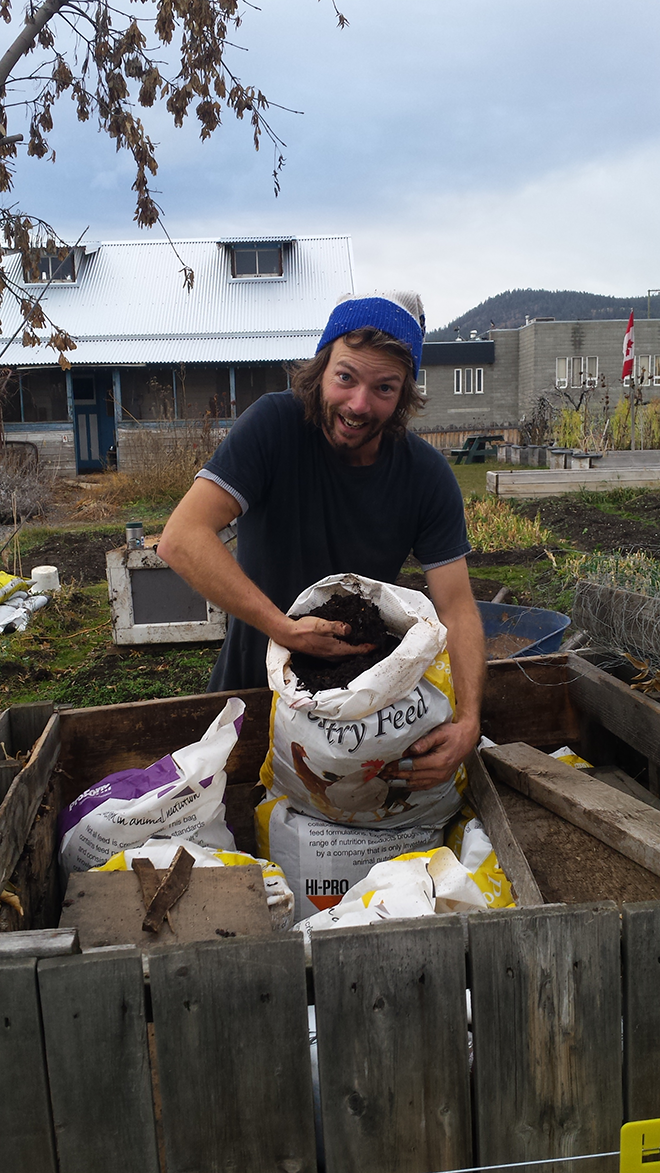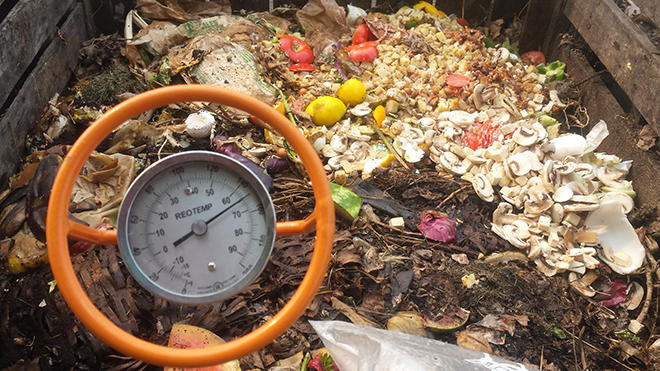By Oliver Berger –
Over half of the waste in our society is organic leftovers we can re-purpose to make valuable additions back into our everyday lives.

I get asked a lot why we cannot have organics diversion bins in our city or the Cariboo region. The answer for this is the cost. When handling organic waste, you haul around much more product than you are finished with, because most of it is water. In reality, for every 100kg of organic waste you move, you will have 20kg of finished soil amendment to potentially sell. That is a tough profit margin. I think it is great that we do not have curbside organics collection. It forces us to think of alternatives.
Most of the food we throw away is what it is called ‘avoidable food waste,’ meaning we could have most likely eaten that food if we did not let it spoil. This is when I like to drop the hint … if there is one thing you can do to prevent unnecessary food waste and save money, please take the time to learn how to cook.
When it comes to unavoidable food waste or other organic leftovers there are many options other than the black garbage bin. The Cariboo Chilcotin Conservation Society has collaborated with restaurants and businesses in Williams Lake, connecting them with local farmers. They are accepting forms of food waste that work for their livestock. Together they divert hundreds of kilograms of potential garbage from the landfill to eager and hungry mouths of pigs and chickens alike. This program is a great addition to the already established connections some local farmers have made.
Currently at the Potato House Sustainability Project, where I volunteer a lot of my time, we have a very successful composting program on the go for those people who cannot compost in their backyards. Restaurants, businesses, schools, apartment dwellers, and the elderly use this valuable option. I turn the piles, adding nutrient-rich leaves and spade-shovel love with each scoop. Once the pile has had the time to cure (six to nine months), I can run it through my brand, new sieve, which I love, by the way. The end result is a beautiful, moist, and nutritious soil amendment; we call it… The Original Black Gold.

Healthy soils are one of the main solutions we can easily work on for the health of our planet. The amount of life in one tablespoon of soil far surpasses the number of humans that have ever walked on Planet Earth. There is a whole world underground that needs respect.
Green lawns, for instance, are one of the largest crops in North America. We waste huge amounts of water and energy creating our stigmatic, prideful green lawns. When I am asked about what to do with grass clippings, the answer is simple. Just mulch them back into your lawn. Fresh grass clippings are very nitrogen rich and that’s exactly what kind of fertilizer most people buy to put on their lawns. Simply put, do us a favour and just use the fertilizer nature gave you for free.
A healthy lawn with colourful diversity is more likely to retain water, creating a vibrant ecosystem, benefiting small critters and micro-organisms. A healthy lawn will actually be a carbon sink, absorbing carbon dioxide and creating oxygen.
When you are stuck with heavier materials such as dimensional lumber or tree branches, any of our local depots accepts these materials, which are then chipped and burned for hog fuel at Williams Lake’s energy plant. The regional district also has wood scavenging permits available so you can source free materials for your new garden bed, dog house, or tree fort.
Farmers and agriculturists around the world are rethinking the way they manage their soils, and so should all of us with our small patches of ground. Just like every drop in the pond makes a ripple all the way across the water, we can make an impact by finding new ways to divert organic waste, connecting with our neighbours and our communities. Everyone knows somebody who has chickens. Instead of just talking the talk, start walking the walk.
Oliver Berger has a 37-year degree in life, starting out in the Spokin Lake area, spending adolescence in Williams Lake, and then venturing throughout the world on a quest of always learning new things. His priorities include dedication to and education about waste management.
